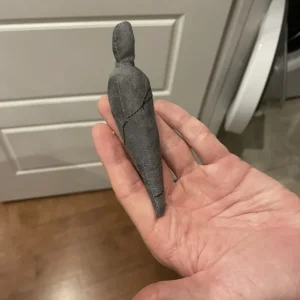In a world that often celebrates love between two people, Antoine Cheval, a French man, chose to take a different approach by marrying himself. After facing repeated rejections in romantic relationships, Antoine decided to embrace the concept of “sologamy”—the act of marrying oneself.
His decision has sparked conversations around self-love, societal expectations, and personal empowerment, challenging traditional views on love and marriage.
Antoine Cheval, a man from France, made headlines when he decided to marry himself. After enduring a series of unsuccessful relationships and unreciprocated proposals, Antoine began reflecting on his self-worth and his ability to find happiness independently. Rather than letting these experiences define him, he opted for a unique commitment to self-love, which he solidified through a self-marriage ceremony. Complete with vows, guests, and a reception, his wedding mirrored traditional nuptials but with a twist—he was the only one at the altar.
Antoine’s story has gained attention not only because of his unconventional choice but also because it represents a growing movement where individuals prioritize self-fulfillment over traditional romantic relationships. For Antoine, this wasn’t just a personal decision; it was a statement challenging societal expectations around love and partnership.
Sologamy, or self-marriage, is the act of marrying oneself. While it may sound unusual, it’s an emerging trend among people who seek independence, personal growth, and a deeper commitment to their own happiness. Unlike traditional marriages, sologamy is not legally binding but serves as a symbolic gesture of self-commitment. Supporters of sologamy view it as a powerful statement of self-love and emotional independence, emphasizing that one’s happiness doesn’t have to rely on a romantic partner.




